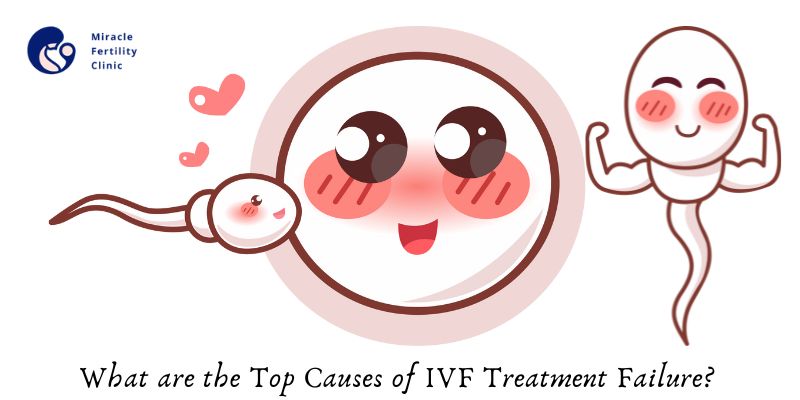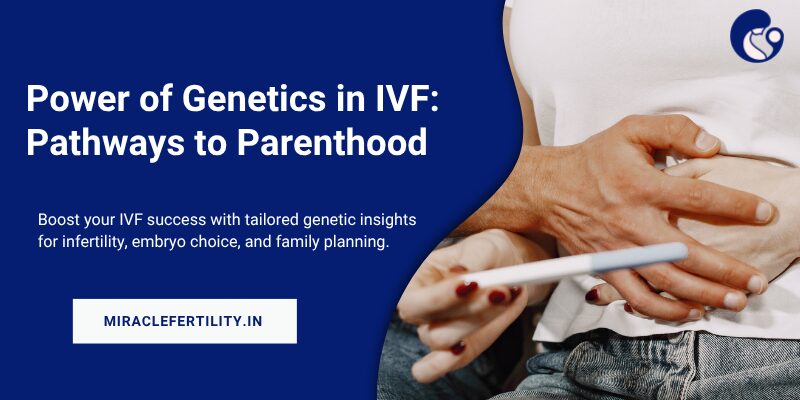Parenthood is nothing short of a blessing, but not everyone can get to be a parent. Many people suffer from fertility problems, and their reproductive health can come in the way of their parenthood, making them incapable of enjoying the pleasure to be a parent. For women, In vitro fertilization (IVF) treatment is regarded as one of the best ways to get a shot at fertility and increase the chances of conception. Despite the success rate and popularity of this treatment approach, it can fail from time to time. Not all women can benefit from IVF treatment. Take a look at the main causes of IVF treatment failure.
Poor Embryo Quality
This is one of the prime and most common causes of failure of the treatment. During IVF, doctors fertilize the eggs with sperm in a lab setting. The embryos that are obtained as a result are then monitored for several days before one or more are transferred to the uterus.
It is not possible to ensure a healthy pregnancy out of all embryos. While all embryos appear to be normal under the microscope some of these can have genetic abnormalities that can cause early miscarriage or prevent implantation. Such chromosomal problems can arise due to:
- Random errors during cell division
- Poor egg or sperm quality
- Age-related factors (particularly observed in women over 35)
Preimplantation Genetic Testing (PGT) and other advanced methods can be useful in detecting embryos with chromosomal abnormalities before transfer occurs. However, even after being tested, pregnancy is not possible with all embryos.
Age of the woman
Age of a woman plays a big role in determining the success of IVF treatment. With advancing age, there is a natural decline in fertility and it particularly occurs after 35 years of age when there is a drop in both the quality and quantity of eggs.
Take a look at how the outcomes of IVF can be affected in women of different age group:
- Under 35 – There is greater chance of success, due to better egg quality.
- 35–37 – There is a small decline in fertility.
- 38–40 – Fertility declines further, increasing miscarriage risks.
- Over 40 – There is a major drop in success rates, often less than 10% per cycle
The success of IVF can be even more challenging with age, even with advanced methods. This is because the eggs are likelier to have chromosomal abnormalities. In these cases, some couples like to use donor egg, to maximize their chances of success with pregnancy.
Implantation Issues
In some cases, until the embryo transfer, the IVF cycle goes of smoothly. However, even then, pregnancy does not happen. This can occur when the embryo is unable to implant itself in the lining of the uterus. Failure of the implantation can occur due to different factors, such as:
Endometrial receptivity
The lining of the uterus has to be healthy and thick enough, to support implantation. In case it is inflamed or too thin in size, the embryo may not be accepted within.
Uterine abnormalities
Implantation can also be affected due to conditions such as septum, polyps or fibroids.
Hormonal imbalances
The success and timing of implantation can be affected by insufficient level of hormones, such as progesterone, in the body of women.
Endometrial Receptivity Analysis (ERA) and other specialized tests may be done, to evaluate the best time for transfer of embryo and improve the chances of pregnancy.
Male Factor Infertility
Male factor infertility also plays a big factor in the failure of pregnancy. Abnormal sperm shape, poor motility (movement), or low sperm count – all these can have a negative effect on fertilization and embryo development.
Intracytoplasmic sperm injection (ICSI)
In this case, just one sperm is directly injected into an egg, to improve fertilization rates. But even ICSI may not be able to result in healthy embryo development if the sperm itself carries DNA damage.
Lifestyle and Other Medical Factors
The success of IVF can be reduced by various lifestyle and systemic medical factors, even when all else appears to be optimal in a lab setting. For instance, both excessive weight and too low body weight can disrupt ovulation and hormone levels, impacting quality of eggs and uterine receptivity.
Alcohol intake and smoking can also reduce fertility in men as well as women, damaging sperm and eggs.
Chronic medical conditions such as autoimmune diseases, thyroid disorders, and diabetes can also interfere with pregnancy.
Stress alone may not directly cause IVF treatment failure. However, excessive stress levels can affect hormonal balance in the body, which in turn may contribute to IVF treatment failure by impacting overall health and well-being during the treatment process.
Final Words
IVF can be extremely effective in the domain of reproductive medicine, but it is not fail-proof, and IVF Treatment Failure can still occur. Before and during IVF treatment, both partners need to maintain a healthy lifestyle to improve their chances. It is also necessary to work with a skilled, qualified fertility specialist at a trusted infertility centre in Kolkata to detect potential issues early and use suitable remedial measures. Taking these steps can help reduce the risk of IVF Treatment Failure and increase the likelihood of a successful pregnancy.





